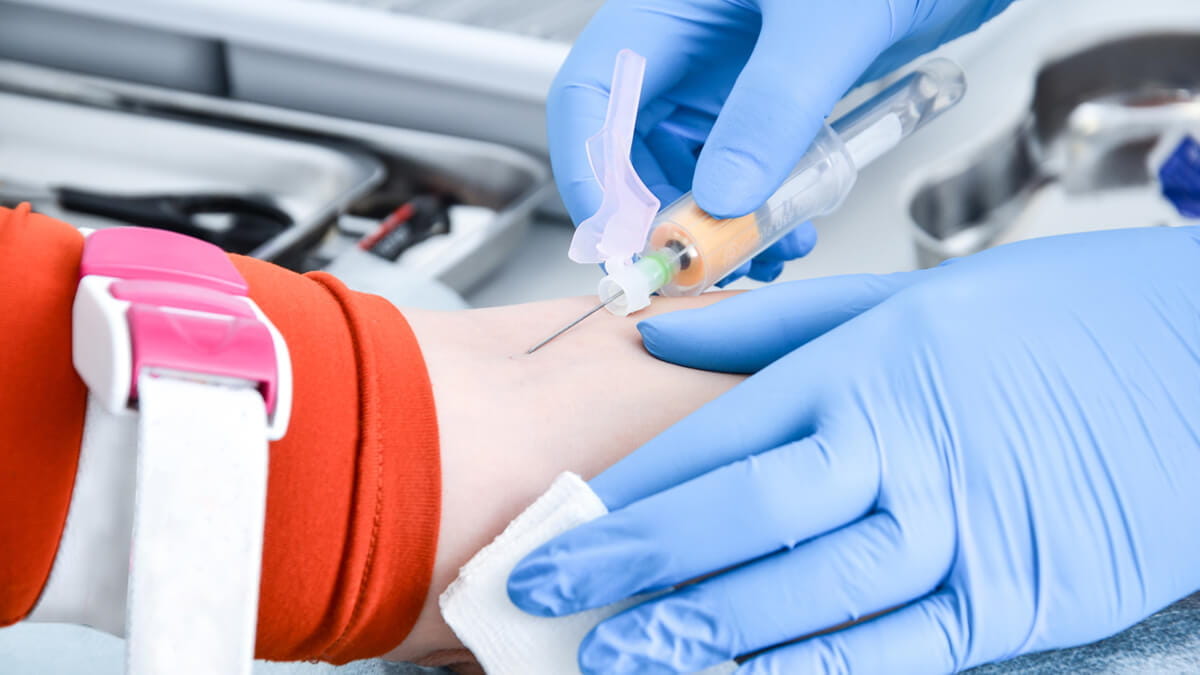As an experienced nurse considering online RN-BSN programs, you know that the job of a phlebotomist is to collect blood for diagnostic testing, research, blood donations, or transfusions. During the process of becoming a nurse, you've performed more than a few venesections yourself. Here are six things that you might not know about phlebotomy or venotomy:
- It's a good time to be a phlebotomist. According to the Bureau of Labor Statistics, phlebotomy jobs are projected to grow 25% by 2026, much faster than the average for all occupations. Hospitals, labs, and blood donation centers will need trained phlebotomists to perform bloodwork.1
- Phlebotomy is rooted in the ancient practice of bloodletting. Phlebotomy is derived from the Greek words phlebo (vein or veins) and tomos (cutting). In ancient times, bloodletting was thought to have curative powers—but often, it accomplished the opposite. More often, people were lucky to survive and many did not, including George Washington, who perished after losing 40% of his blood as part of treatment for a sore throat.
- Red and white barber poles originally advertised bloodletting services. Barbers used to do more than merely cut hair; they also applied their expertise with a sharp tool to perform bloodletting services. The red stripes signified blood and the white bands advertised the bandages used to dress wounds after the procedure.
- Phlebotomy as therapy. Phlebotomy is more than a diagnostic tool. Therapeutic phlebotomy is used to treat several medical conditions. Removing prescribed amounts of blood is used as a treatment for:
- Hemochromatosis – a disorder where there's too much iron in the blood.
- Polycythemia – an excessive number of red blood cells and total blood volume.
- Porphyria – metabolic disorders associated with excessive amounts of porphyrins, one of which is found in hemoglobin, the protein in red blood cells.
- Japanese theory of blood type and personality. The blood type theory that originated in Japan assigns personality traits to blood types, similar to astrology and the signs of the zodiac.
Type O - The Warrior
Type B - The Hunter
Type A - The Farmer
Type AB - The Humanist
- Leeches were historically used as phlebotomy tools. During the Middle Ages, doctors used leeches often enough that they themselves were known as leeches. Modern leech therapy—referred to as hirudotherapy or biotherapy—is used to treat wounds and to remove infected blood from the affected area.
The National Academy of Medicine (formerly called the Institute of Medicine) is calling for nurses to lead the charge in improving the healthcare system, and recommends that RNs enhance their education to meet this challenge.2 RNs who pursue a BSN can expect a good return on their educational investment because the job outlook for registered nurses is projected to grow 15% by 2026, much faster than the average for all occupations.3 If you're an RN who wants to accelerate your career, check out Walden's accelerated online RN-BSN program. It's a great way to get on the fast track to more opportunities and higher earning potential.
The Bachelor of Science in Nursing (RN-BSN) Completion Program, Master of Science in Nursing (MSN), and Doctor of Nursing Practice (DNP) program at Walden University are accredited by the Commission on Collegiate Nursing Education (CCNE). Officially recognized by the U.S. Secretary of Education as a national accreditation agency, CCNE ensures the quality and integrity of baccalaureate, graduate, and residency programs in nursing.
An accredited institution, Walden University is the leading provider of advanced nursing degrees in the U.S.4 Expand your career options and earn your degree in a convenient, flexible format that fits your busy life. Explore Walden’s online nursing degree programs for undergraduate and graduate students. Earn your degree in a convenient online format that fits your busy life.
1Source: www.bls.gov/ooh/healthcare/phlebotomists.htm
2Source: http://nacns.org/wp-content/uploads/2016/11/5-IOM-Report.pdf
3Source: www.bls.gov/ooh/healthcare/registered-nurses.htm
4Source: National Center for Education Statistics (NCES) IPEDS database. Retrieved July 2017, using CIP codes 51.3801 (Registered Nursing/Registered Nurse); 51.3808 (Nursing Science); 51.3818 (Nursing Practice). Includes 2016 preliminary data.
Walden University’s DNP, MSN, and BSN programs are accredited by the Commission on Collegiate Nursing Education (CCNE), 655 K St. NW, Suite 750, Washington, D.C. 20001, 1-202-887-6791. CCNE is a national accrediting agency recognized by the U.S. Department of Education and ensures the quality and integrity of baccalaureate and graduate education programs. For students, accreditation signifies program innovation and continuous self-assessment.
Walden University is accredited by The Higher Learning Commission, www.hlcommission.org.




